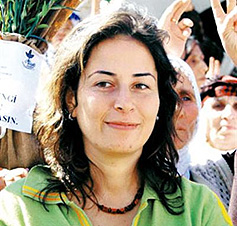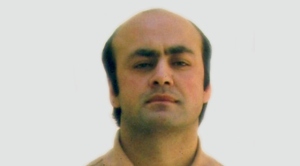Looking at the front page at the website of the International Rehabilitation Council for Torture Victims, two news items on the top feature the same word – Turkey.

Pınar Selek, a sociologist and writer, was convicted on specious charges in Turkey after three previous acquittals.
On Friday of last week, a Turkish court convicted Pınar Selek, a sociologist and writer, on charges arising from an explosion at a market in Istanbul in 1998. Yes, 1998. Fifteen years ago, Turkish authorities arrested the researcher, who was conducting ongoing interviews with the Kurdish minority, tortured her to find out the names of those she had interviewed, and charged her for the explosion at the market. For 15 years, authorities have been trying to convict Selek. During that time she has been acquitted three times, but the judicial harassment continued.
Selek’s work focused on the Kurdish minority and women. And after the explosion, prosecutors claimed that Selek had something to do with a terrorist organisation that planted a bomb. But experts even disagreed if there was a bomb in the first place – many experts said it was instead a gas leak that caused the explosion. Witnesses for the prosecution withdrew testimony as well, claiming that it had been coerced under torture. The through the IRCT project on forensic evidence, experts corroborated that Selek had in fact been tortured in detention.
Today, Selek remains in Strasbourg, France, but a visit to her home country could result in an arrest and life imprisonment. The IRCT is calling for the charges to be dismissed and the harassment to end.
But use of Turkey’s extremely broad and easily abused anti-terrorism legislation, these arrests are not uncommon. Just earlier this month, police arrested 15 lawyers, all of whom belong to Progressive Lawyers Association (Cagdas Hukukçular Dernegi – ÇHD) – an extremely important non-profit organisation that provides legal assistance for victims of human rights violations, including torture.

Engin Çeber, a human rights activist, was arrested and tortured, cause his death in 2008. The lawyers pursuing the case were arrested in January this year.
One such case of theirs was on behalf of Engin Çeber, a human rights activist that was also arrested and tortured in detention in 2008. He died from his injuries.Only after independent forensic evidence confirmedthat he had been tortured did Turkish authorities investigate the case. Three prison officials were sentenced to life; nine others were convicted and given prison terms ranging from 5 months to 12 1/2 years.
These two cases point to a long-term continuous abuse of the anti-terrorism legislation to target human rights defenders and critics of the Turkish state. In just October of law year, the UN Human Rights Committee criticized Turkey on this issue, writing in their final report that:
The Committee is concerned that several provisions of the 1991 Anti-Terrorism Law (Law 3713) are incompatible with the Covenant rights. The Committee is particularly concerned at: (a) the vagueness of the definition of a terrorist act; (b) the far-reaching restrictions imposed on the right to due process; (c) the high number of cases in which human rights defenders, lawyers, journalists and even children are charged under the Anti-Terrorism Law for the free expression of their opinions and ideas, in particular in the context of non-violent discussions of the Kurdish issue. (arts. 2, 14 and 19) [DOC]
The IRCT and our partners are concerned for the safety of the lawyers that remain in custody. But further to that, what does this mean for human rights defenders in Turkey and their continuous fight against torture and other human rights violations?
http://worldwithouttorture.org/2013/01/31/turkey-continues-arrests-detentions-and-convictions-of-human-rights-defenders/